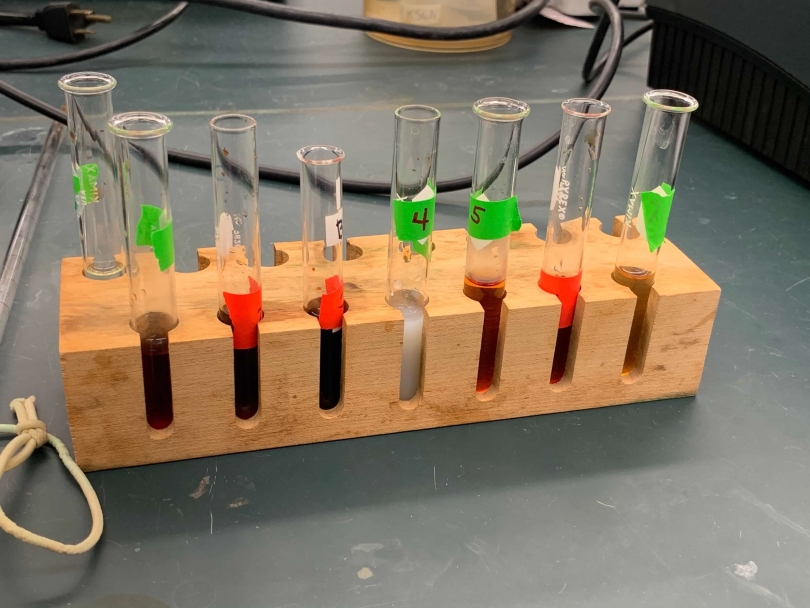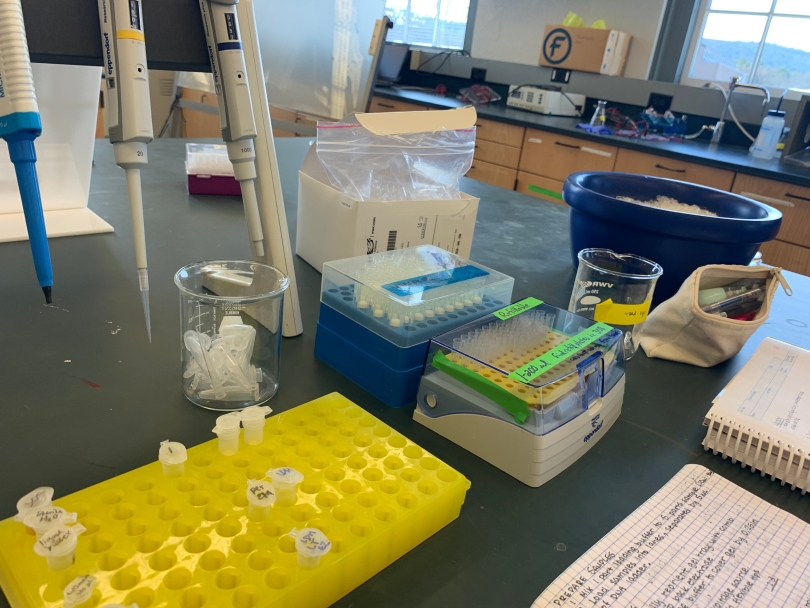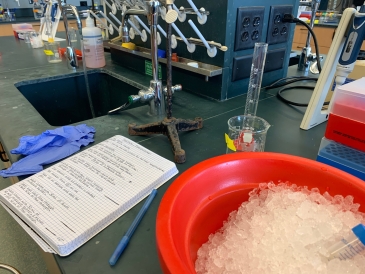
Labs at Dartmouth
Ever wonder what STEM labs are like at Dartmouth? As a pre-med who's done almost all of them both in-person and throughout the pandemic, I believe I am equipped to answer this question.
A good number of intro or core classes at Dartmouth involve labs, notably biology, chemistry, and physics. Introductory computer science courses have something called "recitation," where students are expected to do some problem-solving with a TA once a week, but these are typically only one hour long at their longest and I don't count them as labs.
Instead, Dartmouth labs are listed as four hour time blocks once a week. Typical sections include 8AM - 12PM, 2PM - 6PM, or 6PM - 10PM. I've actually done all these lab sections by now and they are definitely all manageable! My least favorite was probably the 6PM - 10PM one because you don't really have time to enjoy dinner and by the time you get out of lab, it's too late to get a proper meal on-campus other than eat food from Late Night, which is usually fried food.
Certain courses may take up the whole time whereas other courses such as General Physics might only take one or two hours. Additionally, how long you actually spend in lab will depend on you and your lab partner's efficiency—some people are always the first to leave whereas others might take a little longer. Note that while lab courses at other schools might give you more "credits" than a non-lab class, Dartmouth operates on "courses" (as in you need 35 courses to graduate, not x amount of credits). This is important for course planning, because you won't earn more credit towards graduation from your lab courses even though you are doing more work.
Each academic department has a slightly different approach to lab. Biology, for example, is very instructive and each section in BIOL 12 or 13 begins with a lab lecture as well as demonstrations and trial runs. Chemistry, on the other hand, has shorter lab lectures and often just throws you into the deep end with no further instruction other than what was given on the lab manual. If you have questions, you can always ask the graduate TA who supervises your section. I've only ever done physics labs online, but the General Physics courses have relatively simple experiments compared to biology and chemistry (such as rolling objects down an incline or putting together circuits to test Kirchhoff's law).

Before your weekly lab section, you are usually required to fill out your lab notebook and complete any pre-lab assignments. After the lab section, you usually have a post-lab assignment that involves data analysis and answering other questions about your work. The amount of work you have will depend on what class you are taking. In Organic Chemistry, for example, you are expected to spend anywhere from six to eight hours on lab each week in addition to your regular course load.
Lastly, many of the students in these classes are pre-health, but some are also dedicated science majors! There can be quite a lot of camaraderie during your lab sections, especially if you find a good lab partner or group. STEM labs are also really interesting and help support whatever you're learning in class. I've always enjoyed applying concepts to tangible problem-solving, so I personally find lab satisfying although I must concede that it is a lot of work.

If you're able to fit it into your schedule, I think almost everyone could benefit from a lab-based class during their time at Dartmouth, even if it is just to try something new! After all, who wouldn't like to say that they've cloned DNA before or purified copper from coins?


















